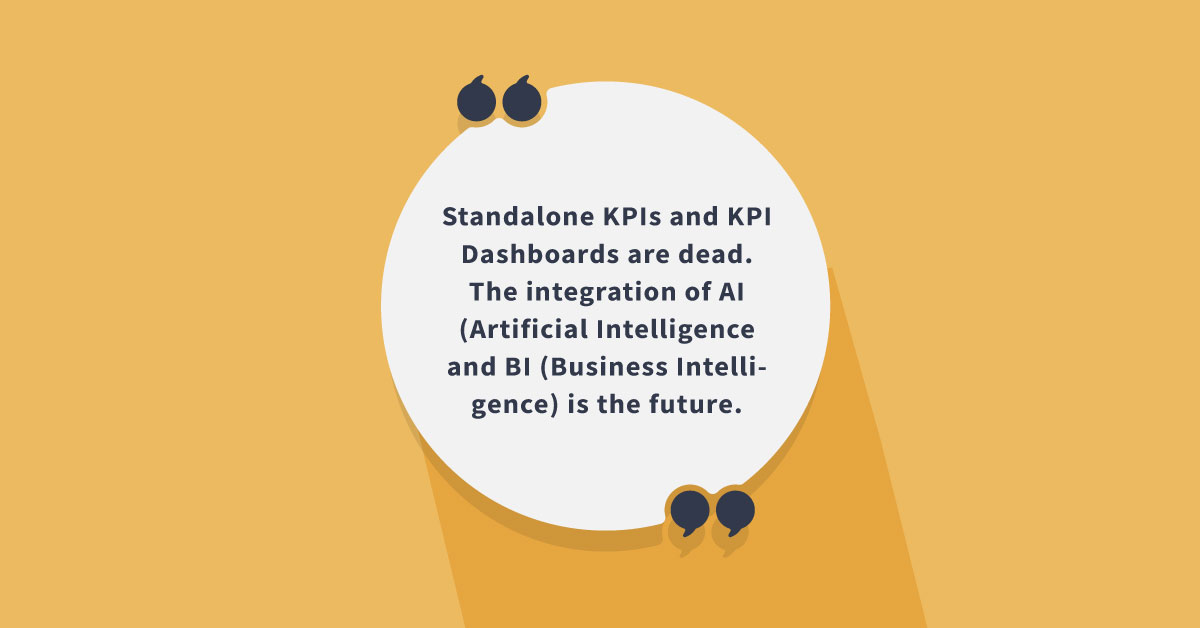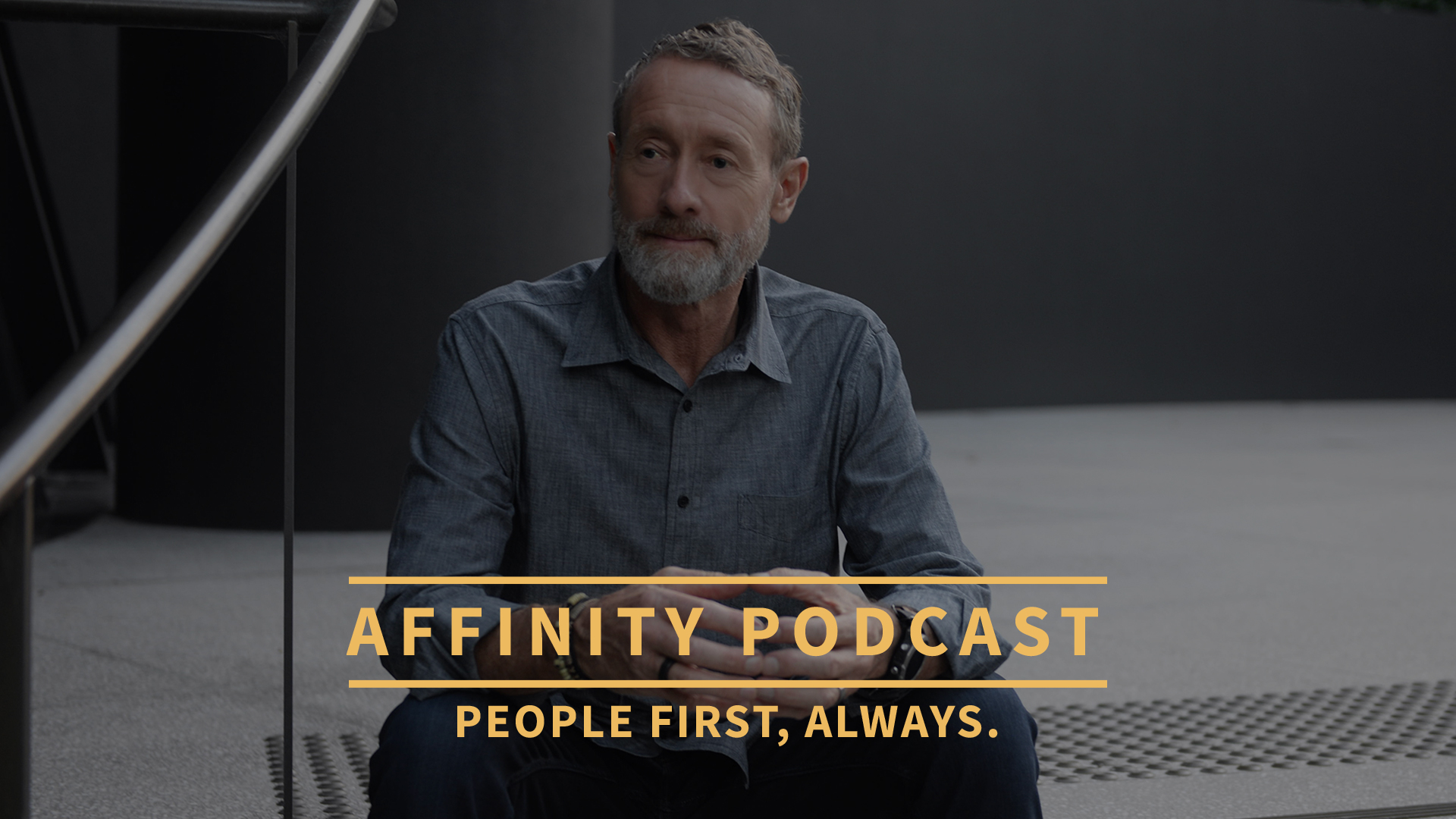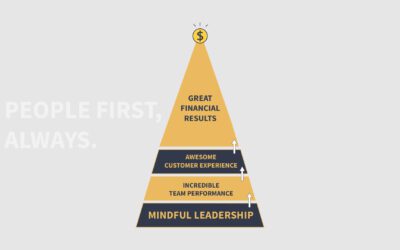Dashboards are Dead. AI-Driven Business Intelligence is the Future.

Grant Ian Gamble is a best-selling mindful leadership author and speaker. He has over 30 years of experience in leading teams to create innovative customer experiences, building engaged workforces, and developing leaders who prioritize mindfulness in their approach.
When I read “Dashboards are Dead”, a recent ThoughtSpot headline, it made me cringe.
Our product, AFFINITY OS™, uses dashboards to visualize the data our AI engine collects from customers/members and team members of our clients’ businesses. Did this mean we needed to rethink the UX, and/or the BI (Business Intelligence) that brings our data into focus?
As ThoughtSpot said in their opening paragraph, “For more than 20 years, dashboards served as a foundational element of business intelligence, helping leaders visualize and share valuable data across their organization.”
ThoughtSpot then went on to say, “At inception, dashboards were the perfect vehicle for delivering key report KPIs without data workers needing a background in coding or IT. But much has changed over the last two decades, including the appetite and needs of business users.”
They go on to cite that 67% of executives aren’t comfortable accessing or using data from their existing dashboard resources.
They point out that it takes on average 4.5 days for a dashboard report to be populated.
And that 50% of data budgets is wasted by remedial data tasks versus analysis.
And then I breathed a sigh of relief.
In Chapter 6 of the article, they point out that the future of data analytics is AI-driven. BI and dashboards aren’t dead, they’re using AI to transform their data into actionable business insights.
And that is exactly how AFFINITY OS works. We use AI to do all the heavy lifting, analyzing customer feedback and team engagement in real time. We use BI to bring this feedback into focus. We use a combination of AI and BI to recommend and prioritize actions in a paint by numbers approach that drives customer experience, retention, referrals, team engagement and growth. Our AI engine also illuminates trends that will impact financial performance and these lead indicators allow you to proactively address these opportunities or threats.
The Future of BI and AI
The integration of BI and AI is an ongoing trend. As AI technology continues to develop, we continue to create even more powerful tools that combine live data analysis, forecasting, and automation to give your business a significant competitive edge.
If you want to know more about AI and BI in action, feel free to reach out to me for a demonstration of AI-driven insights use-case roadmap discovery session.
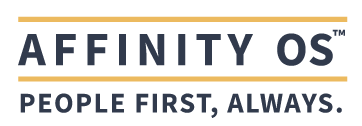
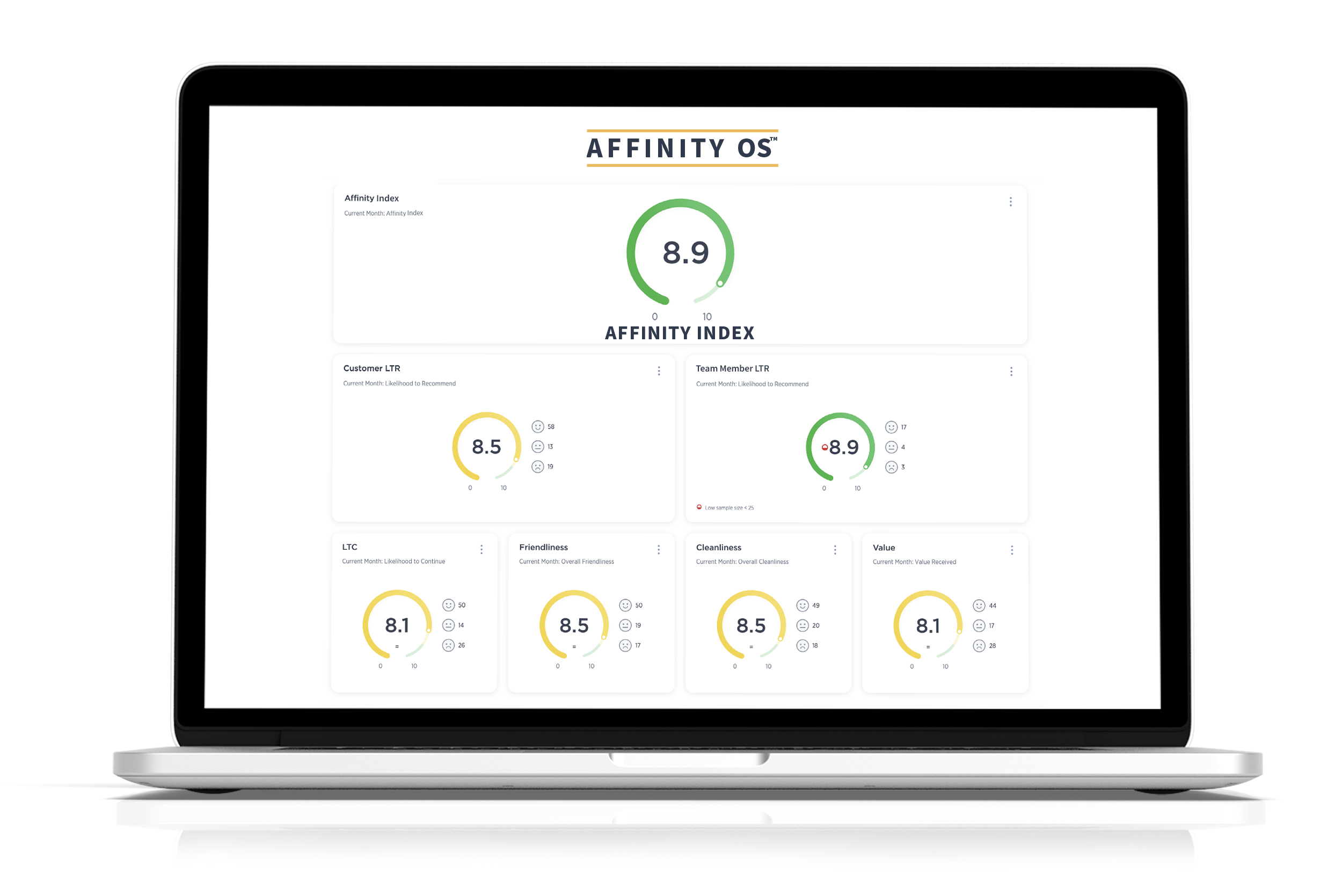 Interested in learning more about how to transform your organization’s approach to team member engagement and customer experience? Reach out to our team at AFFINITY OS, specialists in AI-driven customer experience and team member engagement optimization.
Interested in learning more about how to transform your organization’s approach to team member engagement and customer experience? Reach out to our team at AFFINITY OS, specialists in AI-driven customer experience and team member engagement optimization.

Dive into the heart of exceptional leadership and customer-centric success with AOS Academy. Our certification courses, guided by the “PEOPLE FIRST, ALWAYS” mantra, are designed to support professionals as mindful, effective leaders and service providers.
By integrating key insights from Grant Ian Gamble’s best-selling mindful leadership book, “The Affinity Principle”, we focus on nurturing people-centric cultures of empathy, effective communication, and customer service excellence.
The AOS Academy is more than just training – it’s a journey towards personal and professional transformation, ensuring every interaction and decision is rooted in understanding and valuing people first.
Put PEOPLE FIRST, ALWAYS and watch your business flourish.
Dive deep into the latest trends in customer experience and team engagement, mindful leadership and management. Discover practical tools and strategies that you can use to build a people-centric culture, the foundation for sustainable long-term business growth and success.
Led by mindful leadership expert, Grant Ian Gamble, a best-selling author and true visionary with over 30 years of experience in leading teams to create innovative customer experiences, building engaged, inspired and fulfilled workforces, and developing leaders who prioritize genuine connection in their approach.
The guiding principle behind all of Grant’s work is PEOPLE FIRST, ALWAYS.

More Articles:
The Benefits of Frontline Team Member Engagement and Retention: “The Affinity Principle” Approach
In today’s competitive business environment, frontline team members—those who interact directly with customers—are the cornerstone of any organization, especially those with a high customer-facing presence. However, the traditional approach to talent management often overlooks this vital group, focusing mainly on managerial and executive roles. “The Affinity Principle” reimagines this strategy, stressing the importance of creating an enriching environment for frontline team members that fosters increased retention and better performance.
Unlock the Power of People: Transform Your Business with the AFFINITY Formula and AFFINITY OS
In a world driven by metrics and the relentless pursuit of growth, there’s a principle often overlooked—the essence of human connection. The AFFINITY formula is not just a theory but a realization of what truly drives success in any organization is the people. It’s about acknowledging that businesses don’t operate in isolation. They are living entities, shaped by the relationships between people.
Rediscovering Free Will: The Power of Autonomy and Self-Determination
In the complex tapestry of human existence, the concept of free will holds a prominent position. Victor Frankl, a renowned psychiatrist and Holocaust survivor, and Nir Eyal, a prominent author and behavioral designer, shed light on the significance of free will in our lives. Feeling autonomous and self-determined, that we have the power to exercise free will, is a fundamental psychological need that impacts our mental health. While it is easy to feel swept along by the current of life, believing we lack control over our outcomes, we must recognize our inherent ability to direct and redirect our path. Although we cannot change past decisions, the power to shape our current decisions and determine our direction lies within our grasp.

